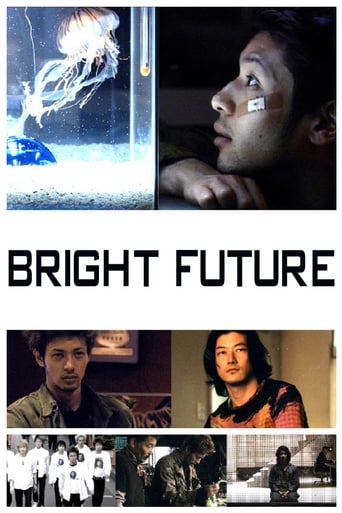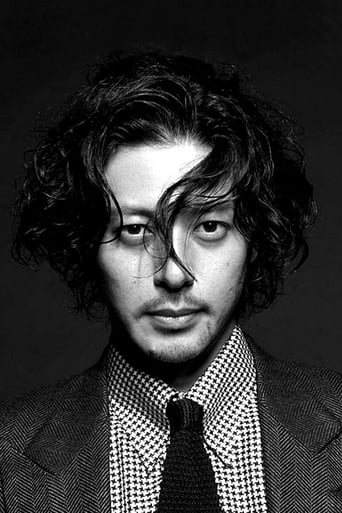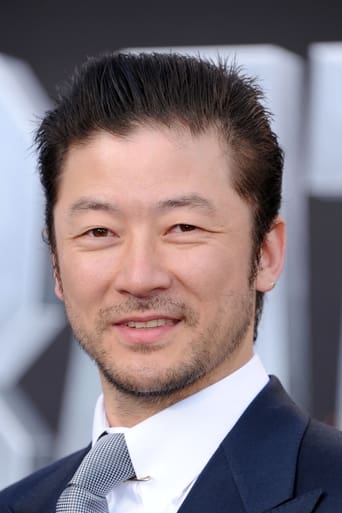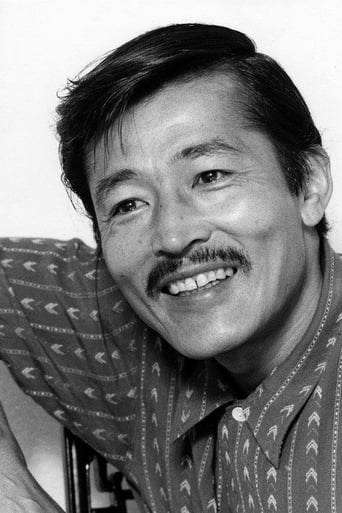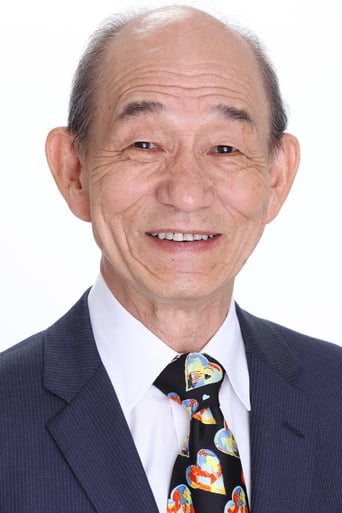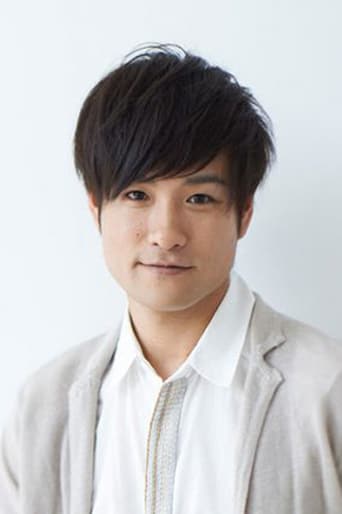Titreenp
SERIOUSLY. This is what the crap Hollywood still puts out?
ReaderKenka
Let's be realistic.
CrawlerChunky
In truth, there is barely enough story here to make a film.
Blake Rivera
If you like to be scared, if you like to laugh, and if you like to learn a thing or two at the movies, this absolutely cannot be missed.
David
Kyoshi Kurosawa is becoming one of my favorite current filmmakers, and the further he gets from conventional horror and shock, the better I think he is.Deeper meanings mingle with absurdist humor, and the kind of chance occurrences that enliven the fiction of Paul Auster and Haruki Murakami also figure heavily in Kurosawa's films; cinematically, everything from Lynch or Fellini to Don Siegel can be a touchstone for further exploration.BRIGHT FUTURE is like an improved CHARISMA - more refined, less loony, and considerably more poetic, but K Kurosawa's many concerns - trashing of the environment, a sense of depersonalization (and discreet nihilism) in younger/future generations, the erosion of a society's cohesiveness (especially when that erosion originates within, and not from some external source) - are handled very well - the last shot offers his darkest humor, with the cross-generational understanding becoming something quietly heroic evoking certain past masters of Japanese film. A sense that - if younger generations have drifted towards a nihilism that could destroy them or you, it is balanced by an equally withering take on the older generations that somehow let them down; this film in many ways visualizes the idea of getting over it, and moving on with life (after presenting some of the consequences for not doing so).Tadanobu Asano's presence here is somewhat hyped (definitely on the DVD cover), undoubtedly due to his ascendant global stardom, but his performance is eclipsed by co-stars Joe Odagiri and Tatsuya Fuji, who both deliver dynamic performances of great range and control.Mysterious, poetic, open to many interpretations, and one of Kyoshi Kurosawa's finest.
Meganeguard
Working at a large laundry cleaning service, Nimura Yuji spends most of his days sorting through clothing and transferring loads of clothing from washers to dryers. While this is not the most mentally stimulating or satisfying work, Nimura is at least accompanied by his best friend Arita Mamoru during his days of drudgery. While his life might be quite dull Nimura is able to escape his humdrum world by entering the realm of dreams where the future is bright. However, in the waking world Nimura seems to be a bit at a loss. He gets into fight over the smallest things such as the pieces of fried chicken in his lunch box were a bit small and it seems that without the guidance of Mamoru Yuji would not be able to survive.Content hanging out at Mamoru's apartment, where he likes to feed Mamoru's pet jellyfish, and listening to music, Nimura's isolated world is invaded when his boss, Mr. Fujiwara, begins to wedge his way into his life. It begins small. Mr. Fujiwara asks the two young men to help him move his daughter's new desk upstairs and asks them to stay afterwards for dinner, but soon he is asking the two young to become fulltime employees and offers them large bonuses. Not sure if they want to accept the bonuses and the fulltime employment, Mamoru and Nimura try to avoid Mr. Fujiwara, but the older man invites himself over to Mamoru's home where he makes himself at home by plopping in front of the TV. Nimura is quite upset at the intrusion, but it is Mamoru who upsets the boss by not warning him when he sticks his hand in the poisonous jellyfish's tank. When accused by his boss, Mamoru quits his job. Left alone at work, Nimura's hatred towards his boss grows until one night, gripping a steel pipe; he is determined to kill his boss. However, when he arrives at his boss's house he finds the bloody corpses of his boss and his boss's wife in their bedroom. Mamoru is soon arrested and put in prison. Although Nimura visits his friend in prison, he is soon left alone and the divide between his reality and his world of dreams soon begins to erode.Bright Future is the first film that I have watched by Kurosawa Kiyoshi. A quiet work, filled with light, whimsical music, Bright Future is a visual delight, especially when the red jellyfish are on screen. Odagiri Jo, Nimura, and Asano Tadanobu, Mamoru, both do excellent jobs of acting and one can truly feel how much Odagiri's character depends on Asano's. However, my favorite bit of acting within the film was performed by Fuji Tatsuya, the actor who starred in Oshima Nagisa's Realm of the Senses. There is one scene that is truly heartbreaking when Fuji's character is searching for Nimura's. A good film overall, but one I believe needs repeated viewing in order to figure out its multifaceted nuances.
sstocker1
Bright Future is about a plot to populate the sewers of Tokyo with a glowing, poisonous jellyfish. So far, so good. There aren't too many movies about plots to populate the sewers of Tokyo with glowing, poisonous jellyfish that I know about. Although the movie has much to commend it, it is ultimately frustrating because characters are constantly doing things not because they make sense but because the filmmaker wants them to in order to advance the plot. Also, the movie has no real ending; it just….ends.On the one hand, you might say that the movie doesn't have to make sense because it follows a dream logic and dreams don't always make sense. However, the best movies that follow a dream logic, such as Bunuel's The Exterminating Angel, have an internal consistency. Actions make sense within the context of the movie. Also, The Exterminating Angel has one of the best endings in all of cinema.I liked the themes of Bright Future: loneliness, alienation, lack of connection between the generations. I also liked the poisonous jellyfish as a metaphor for disaffected, violent teenagers and 20-somethings. However, I had the feeling that the filmmaker wrote himself into a corner and didn't know how to get out of it. Japanese novelist Haruki Murakami does this with his novels. He starts a novel not knowing where it's going but then eventually has to end it, which he almost always does in an unsatisfying manner.Nevertheless, I keep reading Murakami novels and I'm going to seek out other films by Kiyoshi Kurosawa. Maybe some day all the ingredients will fall into place and he'll make a masterpiece.
chinaski88
Nomura practically does not speak, in fact he could be an idiot. Mamoru seems to live in a constant and intense reflection. They both work in a oushibori factory, where the warm and humid towels given to clients at sushi restaurants are made. When not at work, they spend time playing video games or at the bowling room. Nomura admires the jellyfish that floats in Mamoru's fish tank; in his head, Mamoru can't stop thinking about his plan. They live in Tokyo, from which the spectator only sees trash, recycling material and ageless objects. Once, their boss is interested for both friends; he visits them, speaks with them about their youth. Some time after, Mamoru kills him with the rest of his family. In prison, facing death penalty, he receives the visit from his father, who he hasn't seen in years. The old man repairs old televisions and radios that finds in garbage deposits. It's been a long time since the father gave up to any contact with the world and its social ambitions. This is when Mamoru, quiet and manipulator, sets up the last part of his plan. Kiyoshi Kurosawa, the director of Bright Future,is one of Japan's most ambitious contemporary filmmakers, his work seeks to change the classic forms of cinematography to evoke a state of social reality. Born in postwar Kobe in 1955; he is the author of 17 films and three films for TV. His filmography is full of lonely characters and horror. Bright Future manifests a violent vision of the Japanese youth. Young people with no ambitions nor aspirations of any kind,sicken young people that do not fit in today's society. Violence in its most passive way. Kurosawa uses long and quiet shots, that strike upon the spectator's patience. The father's figure and his technological anachronism serve as a reference to the past, and to contrast the idea that technology drowns the modern Japanese; marginating youth to loneliness, turning them into a disperse society. The film can be interpreted as a ghost story. The ghosts of ideals an hope of social change. Ghosts of memories and ordinary practices, that in Kurosawa's work turn violent, they transform to dead ends. The mise-en-scene is magic, a dream like aesthetic that includes the invasion of Tokyo by an army of poisonous jellyfish. A plastic beauty that accompanies all the questioning and illustrates the consequences of a terrorist act. Bright Future is a philosophical exposition about the individual in society, as brilliant and at the same time as dark, that succeeds to move and interest.
